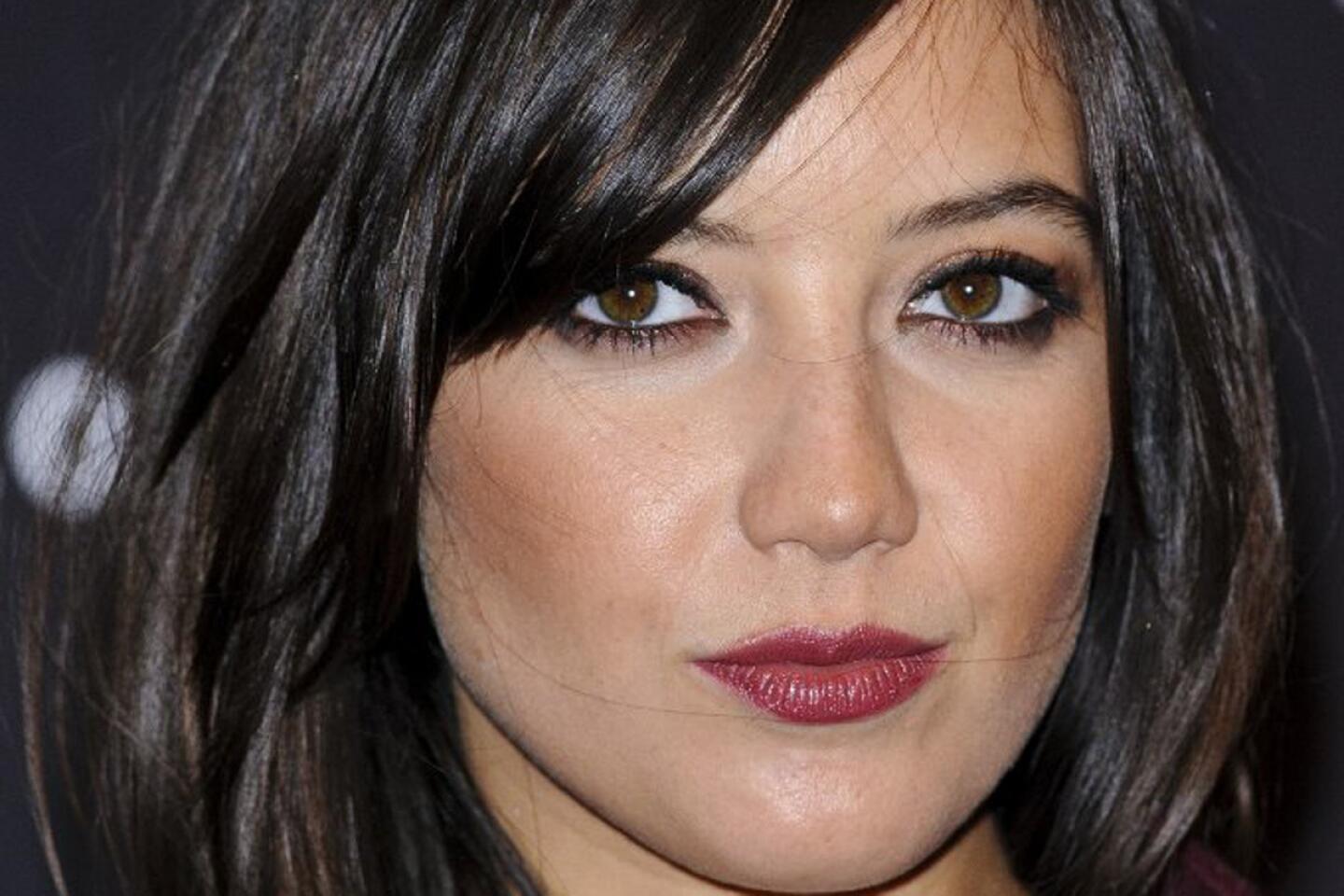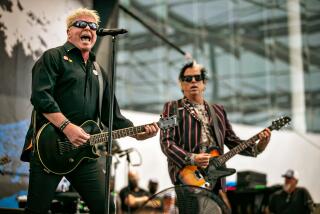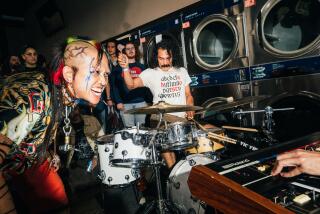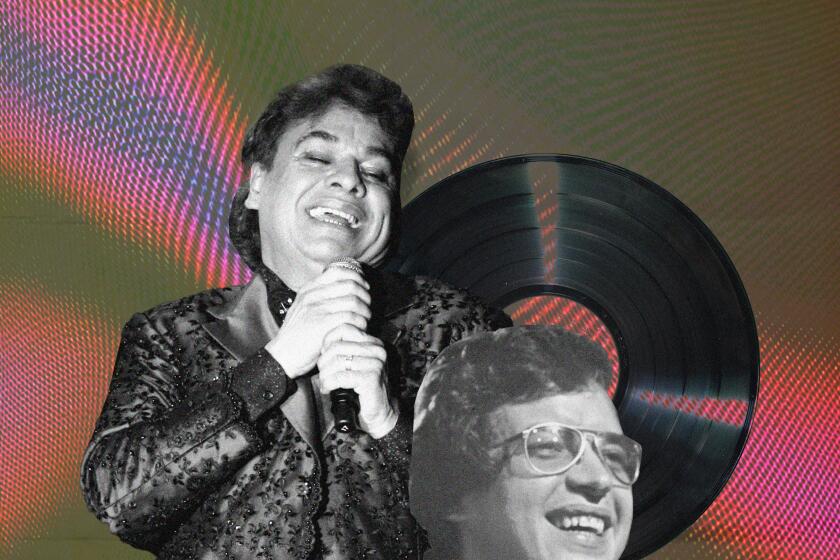Life as one great search, echoing off of Parquet Courts
In 2013, films such as “The Wolf of Wall Street,” “Spring Breakers” and “Pain & Gain” showed us the corrupting power of cash. The just-scraping-by stress articulated by New York rock band the Parquet Courts, on the other hand, captures the souls who just can’t get a break — a soundtrack for twenty- and thirtysomethings who graduated college and have found dead-end jobs rather than a career.
There’s humor, but it isn’t always pretty. Stoned, starving and facing a meal that’s little more than a bag of Swedish Fish, the souls that populate the Parquet Courts’ most recent full-length, “Light Up Gold,” are all on a mission of sorts, but what they’re searching for often isn’t clear.
“You know that you lack something and you know that you need it, but you don’t know what it is,” says primary songwriter Andrew Savage when asked to summarize the tone of “Light Up Gold.” “That’s a feeling a lot of people can relate to, as it’s a feeling that transcends age and geography.”
PHOTOS: Iconic rock guitars and their owners
If the band’s growing fan base is any indication, Parquet Courts has clearly tapped a nerve in a generation coming of age post-recession. Critical adoration and relentless touring have gradually grown the act’s audience over the last year, and Friday they’ll play Hollywood’s 1,300-capacity Fonda Theatre — a venue three times the size of the Echo, where they played the last time they toured L.A.
The band (most of whose members are in their late 20s) may be on the rise, but in contrast, better days are never ahead for the characters on “Light Up Gold,” its first widely available album.
Dreams belong to the privileged in Savage’s lyrics and the taut rhythms provided by his younger brother Max, who juggles drumming duties while trying not to lose his scholarship to New York University.
In concise snippets that are often two minutes or less, the Parquet Courts fashion tales of mini-misfortunes out of everyday commonalities. Characters in the hands of Savage and his three bandmates have little to show for the passage of time other than old laundry receipts, and those looking for romance will find it in a trip to the nearest chain restaurant with a buffet.
The guitars are closely cropped and rhythms lock in like Jenga blocks. The tension here, the kind that bears calluses on fingers and fades paint on instruments, arises from the threat that it all may come crumbling down without warning.
INTERACTIVE: Times music staff best of 2013 list
Savage on “Borrowed Time” sings of “waiting for something that I knew wasn’t coming,” burned out on “motivation neglect.” Words trip over themselves in “Donuts Only,” which pokes fun at the Yankee/Texas cultural divide (“you cannot find bagels here”) while dual guitars circle each other like emergency vehicles that can’t find a crash site.
Call it punk rock cynicism if you like, but Parquet Courts tackles financial depression with a documentarian-like eye.
“My brother and I didn’t grow up in money or anything,” Savage says. “We watched our parents go through hard times. I can relate to that kind of stuff and it’s important to me.”
In the past, Savage has cited American authors such as Thomas Pynchon and Don DeLillo as influences, but he’s shied from discussing specifics, not wanting to be labeled a “literary band.” Yet lyrics come first, says Savage, and melodies are formed from reading words aloud. A new album, for which about 27 songs were written and composed in 13 days, is nearing completion.
Savage hasn’t wavered in his desire for Parquet Courts to exist outside the norm. Some examples of this are more of the day-to-day drudgery type, as Parquet Courts won’t maintain a Twitter account or Facebook page (“We have enough to do in our personal lives,” Savage says), as well as discomfort with overt branding in pop music.
COMMENTS: From Cobain to KISS: Remembering the Forum
Four months ago the band did a concert for a backpack manufacturer, only to find out later that footage from the event would be turned into what Savage deems a “thinly veiled youth marketing commercial.”
“It was a sobering moment,” he says. “We were broke and needed the bread. I don’t regret it because it informed how I will approach that kind of stuff in the future. We don’t care too much about posterity, but we don’t know how it’s going to feel in five years. Like, ‘Why did we do that commercial?’”
Youth culture today, Savage told online music magazine Pitchfork last January, is no longer a counterculture. That’s not to say pop artists aren’t trafficking in similar topics as the Parquet Courts.
Lorde’s “Royals” and Macklemore & Ryan Lewis’ “Thrift Shop,” for instance, looked at income disparity, but did so as a reaction to ostentatious displays of wealth. There’s little time to pay attention to such trappings here, as songs work up a brief, frustrated frenzy in an attempt to “find something real.”
“Rock ‘n’ roll inherently encourages moments of anger,” Savage says. “The struggles of the underdog — people society doesn’t focus on because they’re not glamorous and they don’t generate income for other people — is an important part of being an artist, especially in rock. You have to be able to align yourself with the fringes.”
---------------------------
Parquet Courts
Where: Fonda Theatre, 6126 Hollywood Blvd., Los Angeles
When: Doors open at 8 p.m. Friday
Cost: $15 ($25 with additional service fees)
Information: https://www.axs.com or (888) 929-7849
More to Read
The biggest entertainment stories
Get our big stories about Hollywood, film, television, music, arts, culture and more right in your inbox as soon as they publish.
You may occasionally receive promotional content from the Los Angeles Times.

















